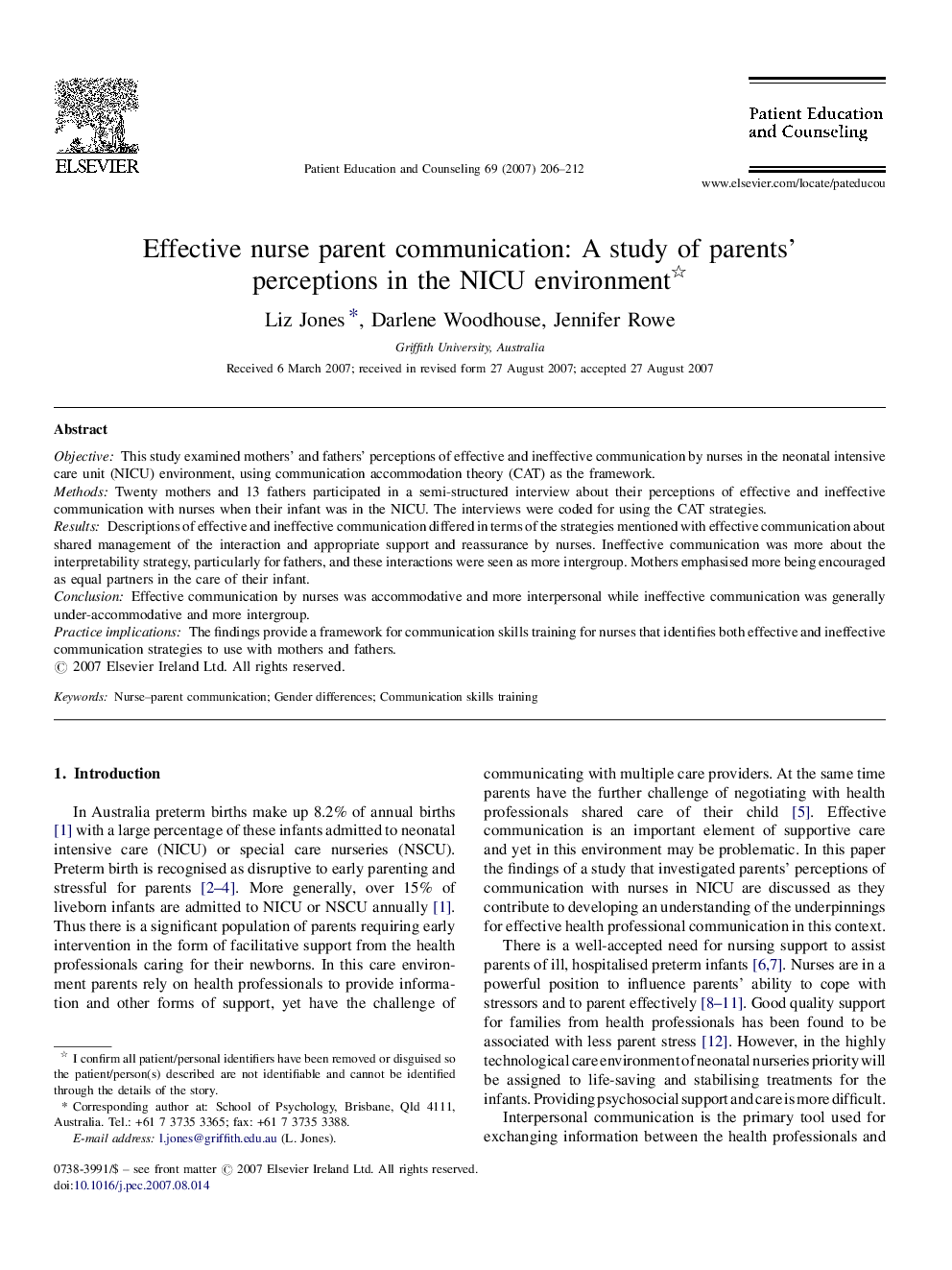| Article ID | Journal | Published Year | Pages | File Type |
|---|---|---|---|---|
| 3814378 | Patient Education and Counseling | 2007 | 7 Pages |
ObjectiveThis study examined mothers’ and fathers’ perceptions of effective and ineffective communication by nurses in the neonatal intensive care unit (NICU) environment, using communication accommodation theory (CAT) as the framework.MethodsTwenty mothers and 13 fathers participated in a semi-structured interview about their perceptions of effective and ineffective communication with nurses when their infant was in the NICU. The interviews were coded for using the CAT strategies.ResultsDescriptions of effective and ineffective communication differed in terms of the strategies mentioned with effective communication about shared management of the interaction and appropriate support and reassurance by nurses. Ineffective communication was more about the interpretability strategy, particularly for fathers, and these interactions were seen as more intergroup. Mothers emphasised more being encouraged as equal partners in the care of their infant.ConclusionEffective communication by nurses was accommodative and more interpersonal while ineffective communication was generally under-accommodative and more intergroup.Practice implicationsThe findings provide a framework for communication skills training for nurses that identifies both effective and ineffective communication strategies to use with mothers and fathers.
